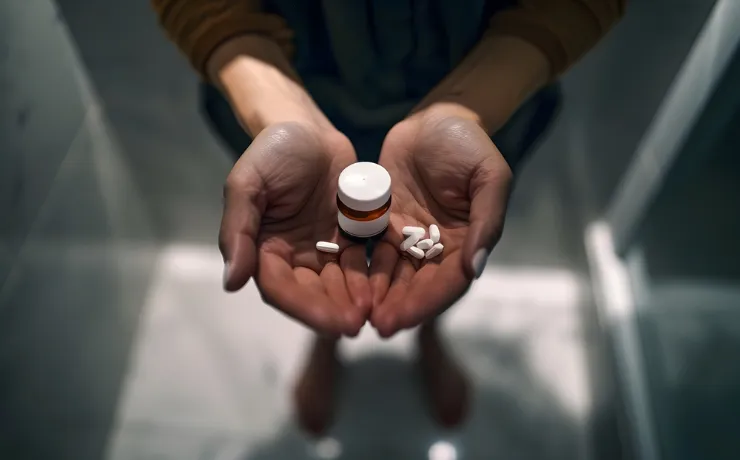Recognizing Opioid Misuse – Information to Support Safe Use

Opioids are powerful medications commonly prescribed to manage moderate to severe pain. When used correctly, they can provide relief and improve quality of life. However, because opioids carry the risk of dependence, misuse, and overdose, it’s essential for patients and caregivers to be informed about safe use.
At Central Pharmacy, we are committed to helping patients understand how to take medications safely, recognize potential misuse, and seek support when needed. This guide will explain what opioid misuse looks like, how to prevent it, and how pharmacists can help.
What Is Opioid Misuse?
Opioid misuse occurs when opioids are taken in ways other than prescribed. This can include:
-
Taking more medication than prescribed
-
Using someone else’s prescription
-
Using opioids for reasons other than pain relief, such as to feel high
-
Taking medication more frequently than directed
Misuse increases the risk of serious side effects, including dependence, addiction, and potentially life-threatening overdose.
Common Signs of Opioid Misuse
Recognizing early signs of misuse can prevent serious complications. Look out for:
Behavioral Changes
-
Mood swings, irritability, or unusual secrecy
-
Neglecting responsibilities at home, school, or work
-
Sudden withdrawal from friends and family
Physical Signs
-
Drowsiness or sedation beyond what is expected
-
Slurred speech or impaired coordination
-
Nausea, vomiting, or constipation
-
Changes in appetite or weight
Medication-Related Indicators
-
Frequently requesting early refills
-
Losing prescriptions or medications often
-
Reports of lost or stolen medication
-
Using multiple pharmacies to obtain opioids
Safe Use of Opioids
Safe use of opioids is key to reducing the risk of misuse and overdose.
Follow the Prescription
-
Take the medication exactly as prescribed.
-
Do not adjust the dose or frequency without your healthcare provider’s approval.
-
Avoid taking medications prescribed for someone else.
Store Medications Securely
-
Keep medications in a locked cabinet or safe.
-
Monitor quantities to detect missing doses.
-
Dispose of unused medication safely, using pharmacy take-back programs if available.
Communicate With Your Healthcare Team
-
Report side effects or unusual reactions promptly.
-
Discuss any concerns about pain management, dependency, or dosage.
-
Ask your pharmacist or doctor about alternatives if you experience strong side effects.
Supporting Safe Use in Families
Parents and caregivers play a vital role in preventing opioid misuse among children and teens. Tips include:
-
Educate children about the dangers of taking medication not prescribed to them.
-
Monitor usage carefully, especially when multiple family members are taking medication.
-
Keep open communication about pain management and safe medication practices.
When to Seek Help
If you suspect misuse or dependence, it’s important to seek professional guidance immediately. Contact a healthcare provider if you notice:
-
Difficulty controlling opioid use
-
Signs of withdrawal when medication is missed
-
Increasing dosage without medical advice
-
Overuse of other substances along with opioids
Early intervention can prevent more serious complications and support safe, effective treatment for pain.
The Role of Your Pharmacist
Pharmacists are a trusted resource for patients taking opioids. At Central Pharmacy, we can:
-
Provide education about safe use and potential side effects
-
Review all medications for interactions or risks
-
Offer guidance on proper storage and disposal
-
Identify potential warning signs of misuse
-
Connect patients with professional support and counseling if needed
Pharmacists play a key role in ensuring that patients use opioids safely while still managing their pain effectively.
Alternatives and Complementary Approaches
In some cases, your healthcare provider may suggest alternatives or complementary approaches to reduce reliance on opioids. These may include:
-
Non-opioid pain relievers available over the counter
-
Physical therapy or exercise programs
-
Mindfulness, relaxation, or cognitive behavioral therapy
-
Other non-medication interventions tailored to specific types of pain
Combining safe opioid use with these strategies can improve pain management while lowering the risk of misuse.
Final Thoughts
Opioids are effective for pain management when used responsibly, but misuse can have serious consequences. By understanding the signs of misuse, following prescription guidelines, and working closely with your pharmacist, you can take steps to use opioids safely.
At Central Pharmacy, our pharmacists are here to educate, support, and guide patients and families in managing pain safely while minimizing the risks of opioid misuse. If you have questions or concerns, don’t hesitate to reach out—your safety is our priority.
Snippet From our blog
Explore helpful tips, expert insights, and the latest health updates on our blog. Find practical advice and resources to support a healthier life.